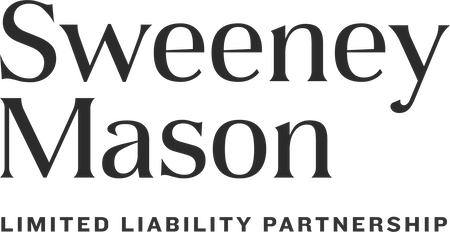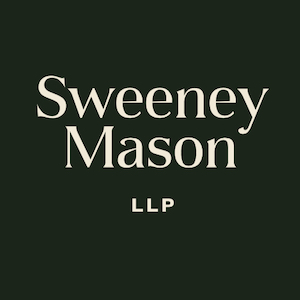Leasehold Improvements Notice of Non-Responsibility – Shield or Not?
By Joseph M. Sweeney, Esq. and Scott A. Mangum, Esq.
In the normal course of a construction project mechanics, material men, contractors and subcontractors have a right to place a lien on real property upon which they have bestowed labor or furnished material, so long as the work was done at the instance of the owner or the owner’s agent. When the property is subject to a lease and the lessee orders the work to be done on the leased premises without the lessor’s knowledge, the lien attaches only to the lessee’s leasehold interest. Improvements constructed with the owner’s knowledge, however, are deemed to be at the instance of the owner—unless the owner records and posts what is known as a “notice of non-responsibility.” A notice of non-responsibility provides owners with a shield that can potentially insulate the owner from a mechanic’s lien recorded by a lessee’s contractor, subcontractor, or material supplier.
Notices of Non-Responsibility and the Participating Owner Doctrine
Notices of non-responsibility, however, are not bulletproof. They do not protect an owner “participating” in the improvement process. A participating owner includes one who participates through lease provisions by requiring a lessee to make improvements to the leasehold, or through financial contribution to the project. California has been a leader in protecting lien claimants and holding lessors liable for the unpaid debts incurred by lessees for the construction of leasehold improvements despite an owner’s filing of a notice of non-responsibility. Indeed, it has been stated that commercial property owners who become involved in controlling the timing and scope of construction work by their lessees act at their own peril. See Diepenbrock, Lessor Liability for Mechanics’ Liens Under the California Participating Owner Doctrine (1992) Pacific L.J. 83, 97.
One primary example of a California court holding an owner/lessor liable for such unpaid debts is Howard S. Wright Construction Co. v. Superior Court (2003) 106 Cal. App. 4th 314, where the court held an owner/lessor jointly liable for $2.5 million in mechanic’s lien claims incurred by a lessee. In Wright Construction, a telecommunications company leased a warehouse pursuant to a lease that required the tenant to use the warehouse only for its telecommunications business and contemplated that the tenant would make extensive improvements to the warehouse in order to facilitate its business operations. The lease also provided that the owner would receive a $5,000 per month administrative fee for his oversight of the improvements, and further required the owner’s approval of the plans and specifications for the tenant improvement work. The improvements began, but the tenant was bankrupt before the improvements were completed. Contractors that worked on the project recorded mechanic’s liens seeking to hold the owner liable for amounts owed for various warehouse improvements.
The Court found that the terms of the lease created an agency relationship between the owner and the lessee. In analyzing the parties’ lease, the Court concluded that the improvements to the property were not undertaken at the lessee’s option. Rather, the Court opined that without such alterations to the premises the lease for a telecommunications business on the site would have no viability. Based on those facts, the Court concluded that the owner was a “participating owner” within the meaning of California’s mechanic’s lien laws and subject to lien claims, despite the fact that the owner/lessor filed a notice of non-responsibility in connection with the project.
Ott Hardware Company and the Origins of the Participating Owner Doctrine
In resolving Wright, the Court relied on Ott Hardware Company Inc. v. Yost (1945) 69 Cal. App. 2d 593, California’s seminal case on the “participating owner” doctrine. In Ott, the property at issue was an antiquated and unused theater building. The owners of the theatre entered into a lease agreement pursuant to which the lessees were to perform certain improvements to the theatre. The lease provided that the lessees would present the plans and specifications for the improvements to the owners for approval and that the owners would deduct $100 per month from the rent to help offset the costs of these improvements. The owners then posted and recorded a notice of non-responsibility and the lessees’ contractors commenced work. Before the project was completed, however, the lessees failed to pay over $12,000 for labor and materials. Mechanic’s liens followed.
In a suit to enforce a mechanic’s lien, brought against both the lessees and the owners of the property, the Court determined that the terms of the lease created an agency relationship making the lessees the agents of the owners for purposes of California’s mechanic’s lien laws. Because the lessees were obligated to make the alterations and improvements as a condition to the effectiveness of the lease, the lessees’ right to cause the improvements to be made was not optional. Accordingly, the owners were “participating owners” within the meaning of California’s mechanic’s liens laws. The notice of non-responsibility was ineffective to protect the owners from the mechanic’s lien.
Both Owners and Lien Claimants Must Actively Protect and Enforce Their Rights
Wright Construction underscores that all owners of leasehold property must carefully negotiate their leases so as not to become a “participating owner.” If they do become a “participating owner” they will not be protected from a mechanic’s lien despite recording a notice of non-responsibility.
As for lien claimants, even if no direct contractual relationship with the owner exists, they should consider recording a mechanic’s lien despite a notice of non-responsibility and attempt to establish that the owner participated in the construction. If the owner/lessor is deemed a “participating owner” in regards to the construction, the owner/lessor may become another source of payment for the lien claimant.
___________________________________________________________________
The information provided in this issue of “Legal Notice” is general in nature and is not intended to answer every question that may arise under different fact situations and should not be relied on in the place of professional advice in a given case. If you have specific questions please contact Joseph M. Sweeney or Scott A. Mangum.
SWEENEY, MASON, WILSON & BOSOMWORTH is a Professional Law Corporation located at 983 University Avenue, Suite 104C, Los Gatos, California 95030. Telephone (408) 356-3000. This “Legal Notice” is designed to assist our clients and other business owners in spotting issues which may result in costly litigation and court awarded damages if allowed to continue unaddressed.
SWEENEY, MASON, WILSON & BOSOMWORTH’s philosophy is that by educating our clients and other businesses about their legal obligations, including changes in the law, we best serve our legal goal of minimizing or preventing expensive litigation.

